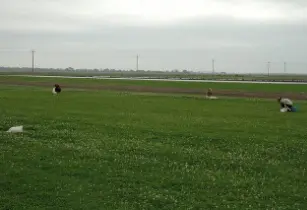While the vast majority of agritech companies are moving towards IoT, a significant proportion lack the staff and skills needed to take advantage of the technology, according to independent research commissioned by Inmarsat
Market research specialist Vanson Bourne interviewed respondents from 100 large agritech businesses across the globe and found that while more than 46 per cent of agritech businesses reported full deployment of IoT solutions and a further 16 per cent have initiated a partial deployment, many companies lack the skills needed to do so effectively.
Additionally, agritech businesses require uplift in skills at the strategic level, where 65 per cent of respondents identified a shortfall, as well as the management and delivery of IoT deployment, where more than 50 per cent of respondents said they lacked staff.
The research also revealed the specific IoT skillsets that agritech companies are lacking. About 55 per cent of agritech companies reported a shortage in cyber security personnel, with analytical and data science skills coming in second in demand at 53 per cent.
Chris Harry-Thomas, director of sector development agriculture at Inmarsat, commented, “IoT is the frontline of the fourth agricultural revolution, providing a digital nerve system with a network of connected and automated devices and sensors. Farmers are leveraging these technologies to dramatically improve the efficiency and precision of their operations, automating irrigation systems so that water is only delivered to where it is needed, and optimising fertilisation to improve yields.”
“With the digital transformation in full swing, many traditionally mechanical-physical industries, such as agriculture, find themselves in a race to recruit digital specialists to support their IoT ambitions. Competing with the likes of Silicon Valley tech companies for skilled staff will be a challenge for the agritech industry, but as these businesses look to take on the burden of data security to build market share in the agriculture sector, it is critical that they recruit staff with the capability to do so,” Thomas added.





